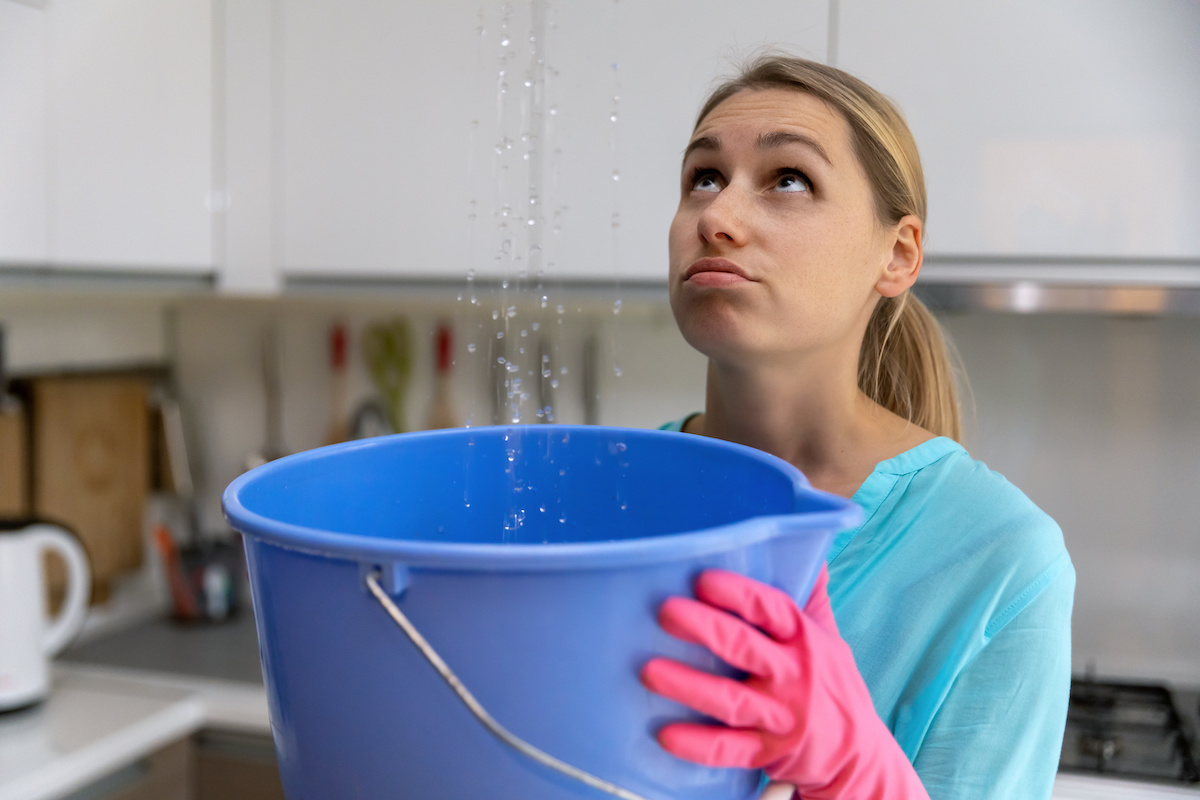Your House's Most Common Factors of Water Leaks: Thorough Investigation
Your House's Most Common Factors of Water Leaks: Thorough Investigation
Blog Article
Nearly everybody seems to have their own idea on the subject of Top Causes of Home Water Leaks.

Leakages not just create waste of water however can additionally cause unnecessary damages to your house and promote undesirable organic development. Water leakages could go undetected since most of the pipework in our home is hidden. By looking and also comprehending for daily scenarios that cause leakages, you can safeguard your home from future leakages and unneeded damages. Today, we will certainly look at 6 leak triggers that might be triggering your pipes to trickle.
Encroaching origins
Many water leakages begin outside the home rather than inside it. You might notice damp spots or sinkholes in your yard, and that could mean that tree origins are getting into water lines creating water to seep out.
Corroded water systems
This may be the reason of discoloration or warping on your water pipelines. If our plumbing system is old, think about changing the pipes because they are at a higher risk of deterioration than the more recent versions.
Defective Pipe Joints
The factor at which your pipelines connect is often the weakest link in the waterline. Pipe joints can wear away with time, resulting in water leaks. The majority of pipeline joints are not easily noticeable. If you have loud pipelines that make ticking or banging sounds, specifically when the hot water is turned on, your pipe joints are probably under a great deal of pressure. It is advisable to have your plumber inspect your system once a year.
Instant temperature level changes.
Severe temperature level changes in our pipes can trigger them to expand as well as get suddenly. This development and tightening may create fractures in the pipes, especially if the temperature are below freezing. If you kept an eye on how your plumbing works, it would be best. The visibility of the previously pointed out conditions regularly shows a high risk.
Poor Water Connectors
At times, a leak can be triggered by loosened pipes as well as pipelines that supply your devices. In case of a water connections leakage, you may notice water running directly from the supply line or puddles around your appliances.
Obstructed Drains
Obstructed drains may be annoying and inconveniencing, however they can sometimes end up creating an overflow bring about rupture pipes. Maintain getting rid of any products that may decrease your drains pipes that could clog them to avoid such aggravations.
All the above are reasons for leakages but not all water leaks result from plumbing leakages; some leaks may originate from roof covering leaks. All leakages must be repaired promptly to prevent water damage.
Leaks not only trigger waste of water however can additionally cause unnecessary damages to your home and also advertise unwanted natural growth. By looking and also recognizing for everyday circumstances that trigger leakages, you can shield your residence from future leakages and unneeded damages. Today, we will certainly look at six leakage causes that may be triggering your pipes to drip.
At times, a leakage can be caused by loosened pipes and also pipelines that supply your appliances. In instance of a water connections leakage, you might observe water running straight from the supply line or puddles around your appliances.
How To Check For Water Leak In Your Home
How To Check for Leaks
The average household's leaks can account for nearly 10,000 gallons of water wasted every year and ten percent of homes have leaks that waste 90 gallons or more per day. Common types of leaks found in the home are worn toilet flappers, dripping faucets, and other leaking valves. These types of leaks are often easy to fix, requiring only a few tools and hardware that can pay for themselves in water savings. Fixing easily corrected household water leaks can save homeowners about 10 percent on their water bills.
To check for leaks in your home, you first need to determine whether you're wasting water and then identify the source of the leak. Here are some tips for finding leaks:
Take a look at your water usage during a colder month, such as January or February. If a family of four exceeds 12,000 gallons per month, there are serious leaks.
Check your water meter before and after a two-hour period when no water is being used. If the meter changes at all, you probably have a leak.
Identify toilet leaks by placing a drop of food coloring in the toilet tank. If any color shows up in the bowl after 10 minutes, you have a leak. (Be sure to flush immediately after the experiment to avoid staining the tank.)
Examine faucet gaskets and pipe fittings for any water on the outside of the pipe to check for surface leaks.
Undetected water leaks can happen without the home or business owner even realizing. If you suspect a water leak, but not able to find the source. It is time to contact a professional water leak detection service, The Leak Doctor.
How To Find a Water Leak In Your Home
https://www.leakdoctor.com/blog/How-To-Check-For-Water-Leak-In-Your-Home_AE197.html

Hopefully you enjoyed our piece on How to Find Water Leaks. Thanks for finding the time to read through our blog. Don't hesitate to set aside a second to share this entry if you liked it. Thank-you for going through it.
Plumbing challenges? Get immediate solutions. Report this page